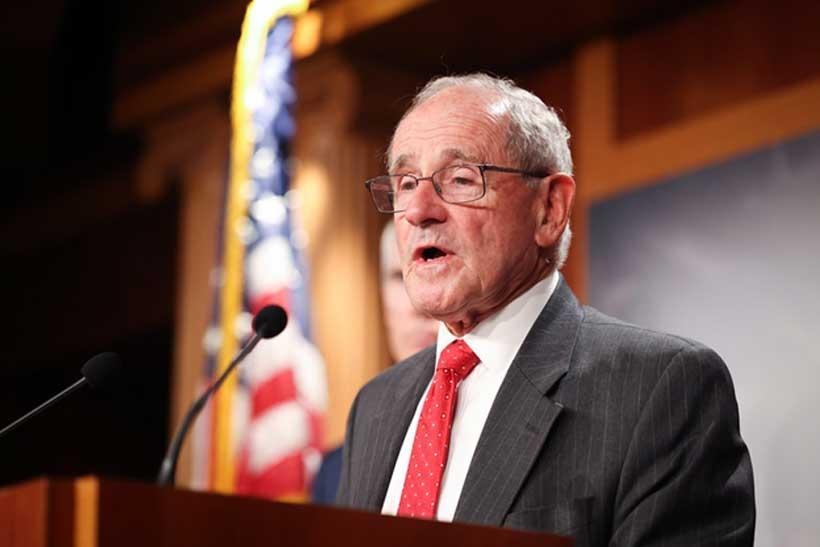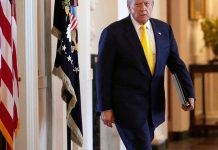By
Pearl Matibe
Africa-Press – Mauritius. In the constitutional order of American foreign policymaking, Congress wields more than a gavel—it holds the compass. Under Article I, Section 8 of the U.S. Constitution, Congress is granted authority to “make rules for the government and regulation of the land and naval forces.” That authority extends to foreign relations, military engagement, and the allocation of public funds, giving Congress not just a say, but also a strategic stake in shaping U.S. foreign policy.
Today, that stake is being reasserted through a suite of amendments led by Senator Jim Risch (R-Idaho), Chairman of the Senate Foreign Relations Committee. Inserted into the 2026 National Defense Authorization Act (NDAA), four amendments—S.Amdt.3625, S.Amdt.3626, S.Amdt.3627, and S.Amdt.3628—signal a recalibration in how Washington intends to engage with Africa. These are actionable policy directives with measurable consequences. They represent a deliberate legislative act of strategic realignment—redrawing lines of cooperation and setting new conditions for partnership.
At a moment when global power dynamics are shifting and Africa remains a contested space for influence by China, Russia, and regional actors, Risch’s Africa amendments seek to clarify what Washington expects and what it is willing to underwrite. These amendments reflect not only the institutional power of Congress but also the particular force of a Chairman’s pen, especially one long focused on accountability and national interest.
Congressional Check on Strategic Drift
S.Amdt.3628 commands a presidential review of Kenya’s status as a Major Non-NATO Ally (MNNA)—a coveted designation that confers military and economic benefits. The review, however, is not guaranteed to endorse the status quo. Instead, it will evaluate whether Nairobi’s policies align with U.S. national security objectives, particularly amid Kenya’s growing military and diplomatic ties with China and Russia. To be more specific, MNNA privileges are now tied to geopolitical alignment, not merely historical goodwill.
S.Amdt.3627 introduces economic realism into U.S.-Africa relations. It conditions U.S. support for Ghana’s access to IMF resources on the repayment of long-standing commercial debts owed to American companies. By tying sovereign financial flows to the resolution of private-sector claims, Congress is signaling a deeper integration of commercial reciprocity into foreign policy—diplomacy fused with debt collection.
M23, RSF, and a Counterterrorism Crossroads
S.Amdt.3626 goes further, pushing for a formal assessment of whether the March 23 Movement (M23) rebel movement in the Democratic Republic of the Congo and Sudan’s Rapid Support Forces (RSF) should be designated as Foreign Terrorist Organizations (FTOs) under U.S. law. While RSF’s atrocities are widely acknowledged, the inclusion of M23 reflects evolving concerns.
The group now known as AFC-M23 (Alliance Fleuve Congo- March 23 Movement) has morphed from a rebel militia into an organized armed coalition with political ambitions. Since late 2024, it has executed coordinated military campaigns, deployed advanced weapon systems, and claimed control over territory in eastern DRC. These actions are deliberate, political, and violent. According to the U.S. Code’s definition of terrorism, AFC-M23 would qualify being characterized as a terrorist group. AFC-M23’s actions clearly fit the mold. Their public statements to international media and calculated offensives point to a hybrid armed action that, but one that crosses the line from rebellion to terrorism.
The strategic implications of an FTO designation are vast. They include sanctions, financial restrictions, and foreign policy repercussions. However, for policymakers in Washington and major policy capitols around the world, it raises a broader question—how to classify armed actors in fragile states whose tactics resemble terror, even when their branding may not.
AUSSOM and the Power Audit
Figure 2: Then Senator Jim Risch—now Chairman of the Senate Foreign Relations Committee— flanked by Senator Ted Cruz (R-TX) speaking at a press conference in the U.S. Capitol. Source: Office of Senator Jim Risch, July 2022.
S.Amdt.3625, dealing with the African Union’s School of Security Organs Management (AUSSOM), is rooted in fiscal oversight. Together with Senators Ted Cruz (R-TX) and Rick Scott (R-FL), Risch introduced the AUSSOM Funding Restriction Act of 2025 to “restrict the use of United States Assessed Contributions to the United Nations under United Nations Security Council Resolution 2719 (2023) to support the African Union’s peacekeeping mission in Somalia.”
The concern is straightforward; U.S. taxpayer funds—channeled through the UN—should not support institutions whose operations, curriculum, or ideological leanings contradict American values or lack transparency. As the senators put it, “The AU’s inability to meet the eligibility criteria and funding conditions asked of the U.S. shows a disregard for the American taxpayer’s money.” This is not isolationism. It is an audit of intent and impact.
Constitutional Power Meets Strategic Posture
What all four amendments share is a grounding in Congress’s constitutional authority over foreign affairs, and specifically in its control over funding—what scholars call the “power of the purse,” or perhaps more aptly in today’s context, the power to define strategic priorities. This is not just a matter of legal checks and balances; it is a matter of global signal-setting. Foreign governments, multilateral institutions, and adversarial powers take notice when the U.S. Senate raises red flags—particularly when those flags are attached to funding streams and security cooperation.
The importance of Chairman Risch’s role cannot be overstated. He is not simply one among one hundred senators. As Chair of the Senate Foreign Relations Committee, he holds substantial sway over how Congress executes its foreign affairs prerogatives. His legislative initiatives are closely watched not just in Washington, but also in global capitals where American defense and diplomatic presence matters.
Likewise, Senator Ted Cruz—Chair of the Subcommittee on Africa and Global Health Policy—adds institutional weight and ideological momentum to these measures. Together, their partnership reflects a Republican-led recalibration of Africa policy in the second Trump administration—a shift toward conditionality, transparency, reciprocity, and safeguarding of U.S. interests abroad.
The World Should Be Watching Risch
For European, African, and global policy audiences, this moment presents a case study in how congressional action can shape—not merely respond to—international security trends. Defense partnerships, financial negotiations, and multilateral engagements now face heightened scrutiny through the lens of enforceable legislative provisions.
From these senators’ standpoint, this is not about Washington disengaging from Africa. It is about Washington redefining the contract—making clear that access to American support must be earned through alignment, transparency, and accountability.
From these American lawmakers’ vantage point, and particularly from the desk of Chairman Jim Risch, this is how foreign policy is written in pen and statute. And for those in the global defense policy ecosystem, it is time to take note—not just of U.S. power—but of where, how, and by whom that power is now being exercised.
moderndiplomacy
For More News And Analysis About Mauritius Follow Africa-Press







